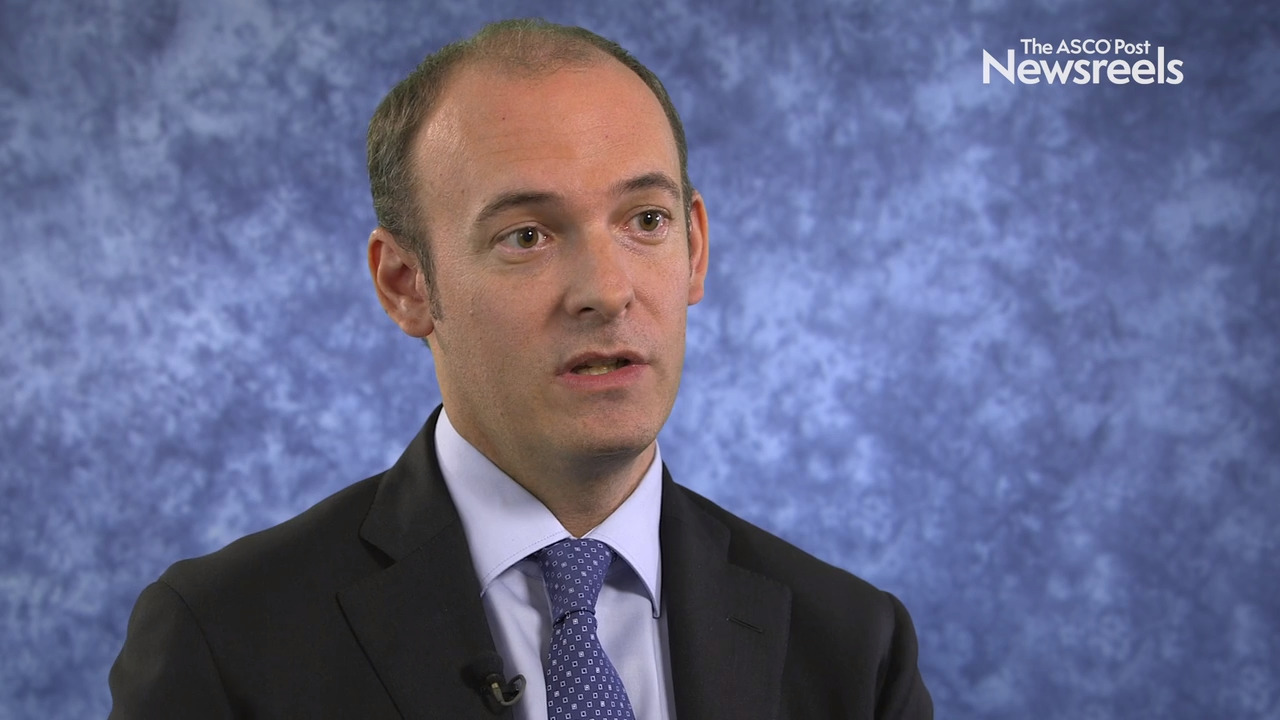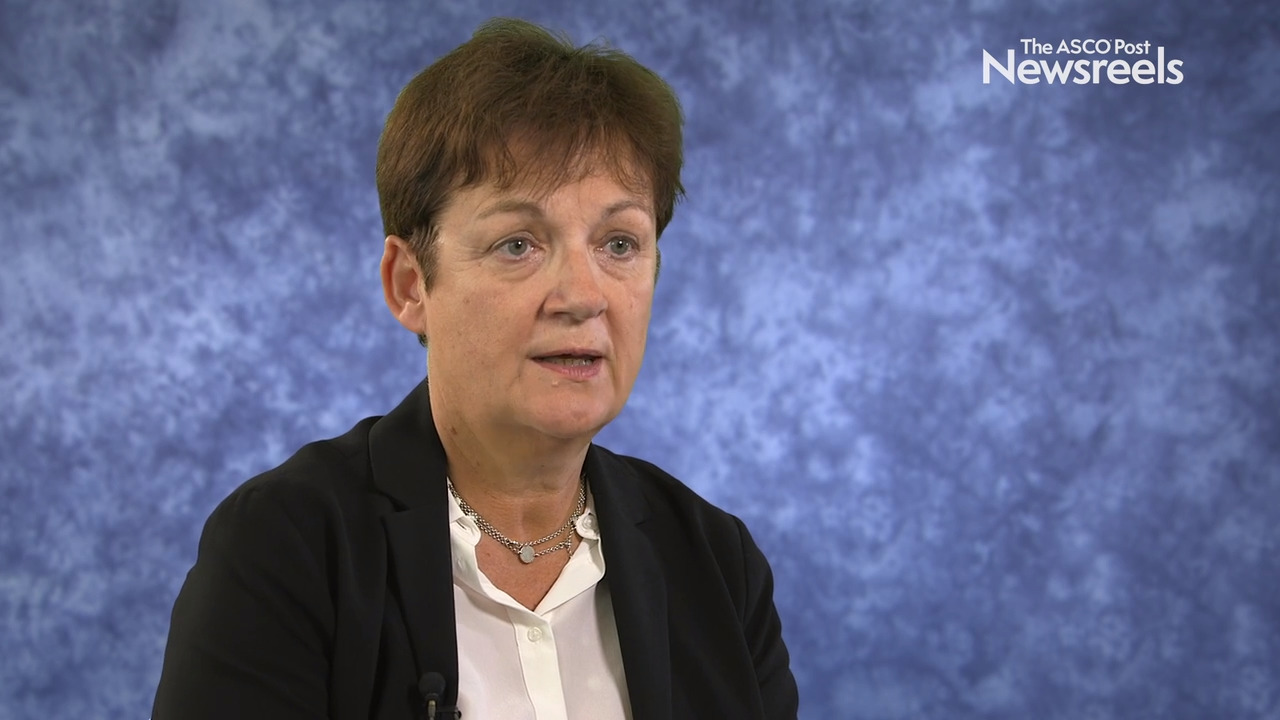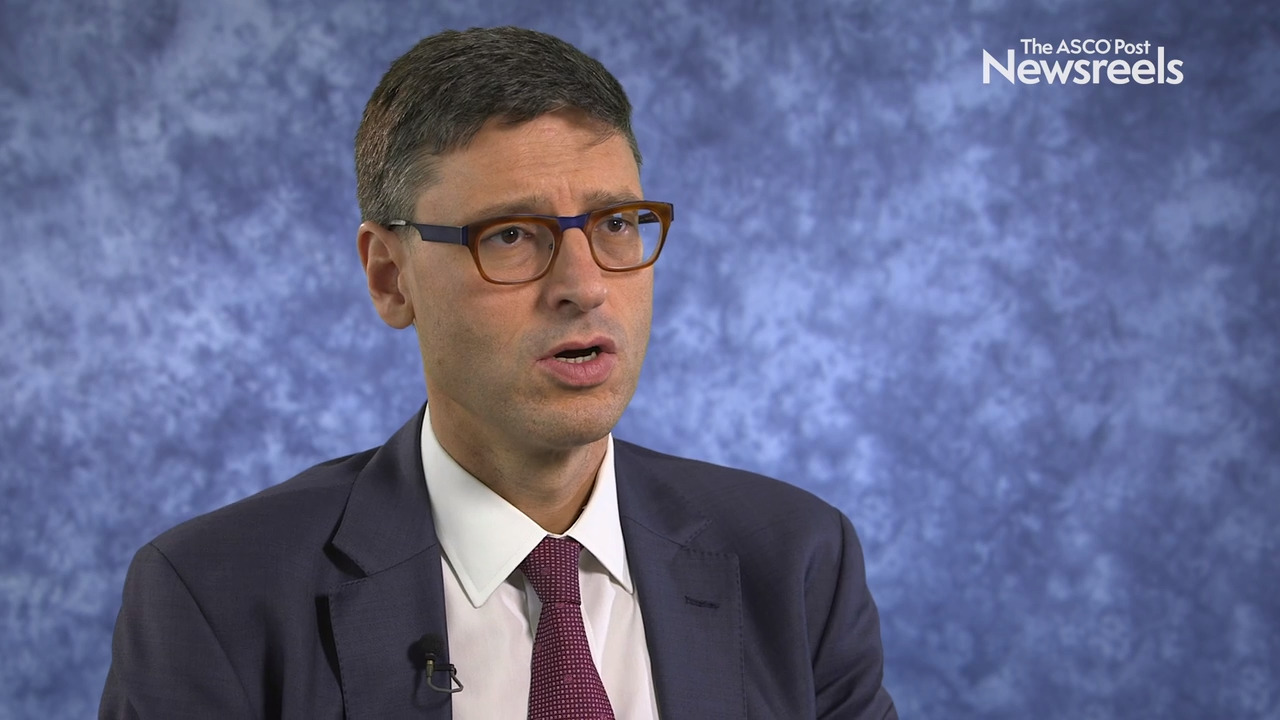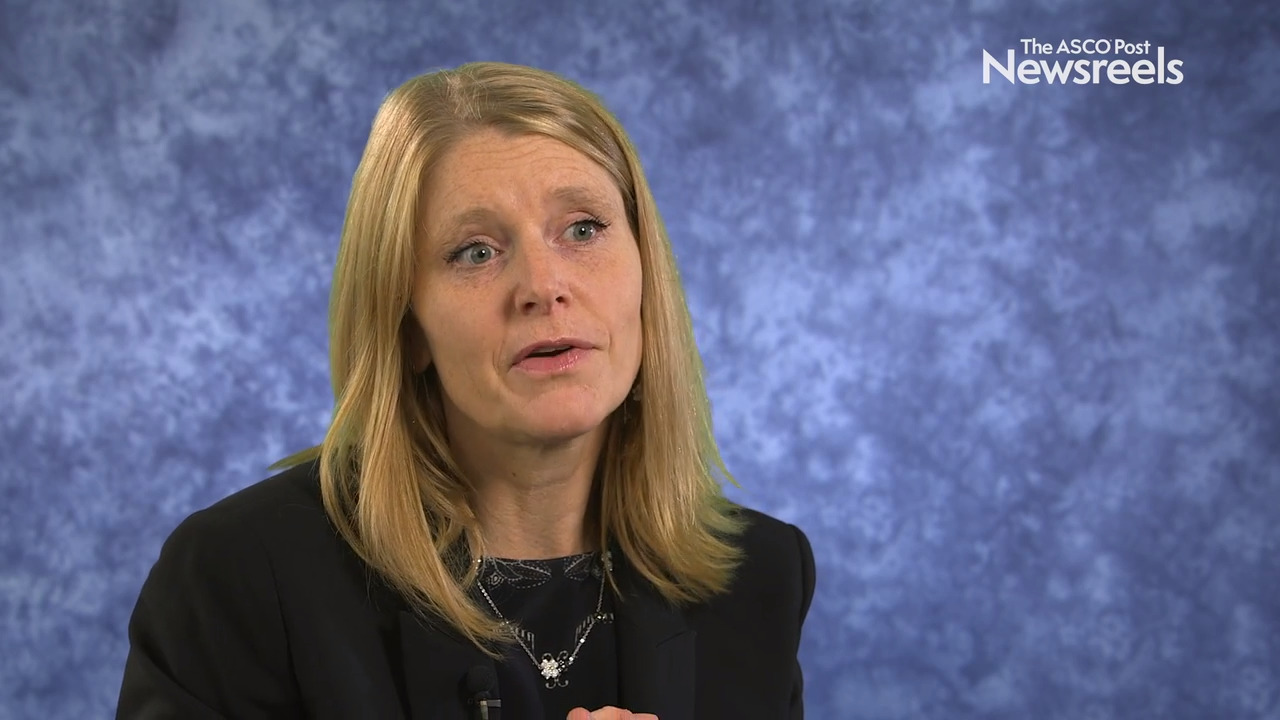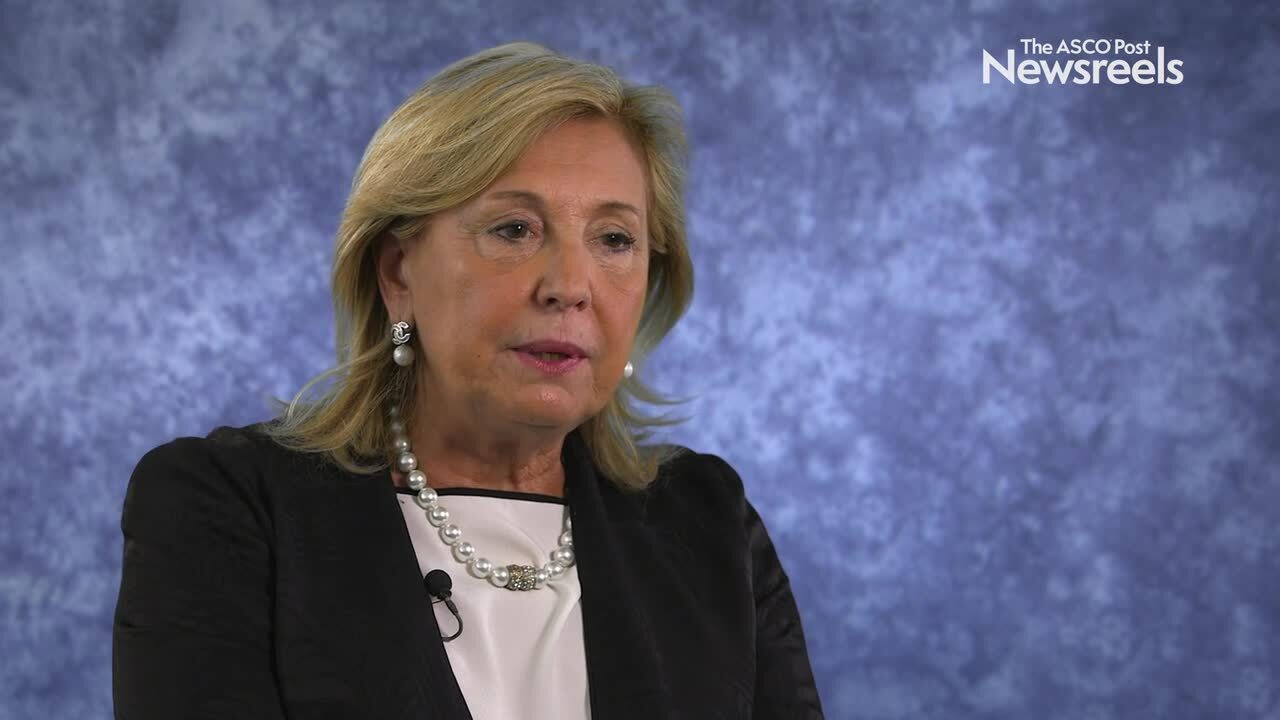Mansoor R. Mirza, MD, and Robert L. Coleman, MD, on Integrating Velaparib With Chemotherapy and Maintenance Therapy in Gynecologic Cancers
ESMO 2019 Congress
Mansoor R. Mirza, MD, of Copenhagen University Hospital, and Robert L. Coleman, MD, of The University of Texas MD Anderson Cancer Center, discuss phase III study findings, which showed that by adding veliparib to front-line carboplatin and paclitaxel and continuing it as monotherapy maintenance, the PARP inhibitor extended progression-free survival in women with newly diagnosed high-grade serous carcinoma of the ovaries or fallopian tubes or tumors of primary peritoneal origin (Abstract LBA3).
Aleix Prat, MD, PhD, of Hospital Clinic de Barcelona, discusses the findings of a meta-analysis showing that the HER2-E subtype may predict pathologic complete response beyond hormone receptor status in HER2-positive early breast cancer (Abstract 248P).
Véronique Diéras, MD, of Institut Curie Paris & Saint Cloud, discusses results from the phase III BROCADE 3 trial, which investigated the PARP inhibitor veliparib in combination with carboplatin/paclitaxel in patients with advanced HER2-negative, germline BRCA–mutated breast cancer (Abstract LBA9).
Antonio González Martín, MD, PhD, of the Clínica Universidad de Navarra, discusses study findings showing niraparib therapy significantly improved progression-free survival in patients with advanced ovarian cancer across biomarker subgroups (Abstract LBA1).
Solange Peters, MD, PhD, of the Oncology Department of CHUV, discusses study findings from the first phase III trial to show PD-1 and CTLA-4 inhibition is effective in non–small cell lung cancer, with improved overall survival vs chemotherapy (Abstract LBA4).
Nicoletta Colombo, MD, of Istituto Europeo di Oncologia, discusses the efficacy of lenvatinib/pembrolizumab in metastatic endometrial cancer. The combination showed antitumor activity, regardless of tumor microsatellite instability or DNA mismatch repair status (Abstract 994O).
